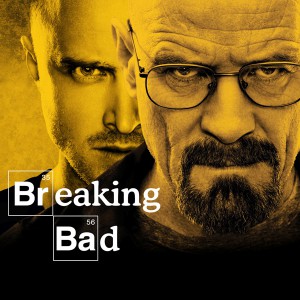How Humanism Could Have Prevented Breaking Bad

With this past Sunday’s finale, AMC’s dark dramatic television series Breaking Bad concluded a journey that captivated American audiences and transformed the landscape of modern small-screen entertainment. In the tale of Walter White, a quiet high school chemistry teacher turned maniacal drug lord, many complex, uncomfortable, and tragic stories unfolded along the way. Laws broken, lives destroyed, morals shattered—Breaking Bad has been nothing if not harrowing viewing.
It’s almost impossible not to look back on the series’ twists and turns and wonder at the ways it could have all gone differently. If the world of Breaking Bad was, say, more of a humanist society, what might have changed?
Walt’s Job: Let’s just start from the very beginning: If high school teachers received better pay and benefits Walt wouldn’t have had to work a second job to support his family, and he certainly wouldn’t have seen cooking meth as a more viable option for amassing resources than a more legal profession. Improving education is a strong tenet of humanistic values, and one from which Walter White would have benefited tremendously.
Walt’s Cancer: Humanists believe that the progress of our species is greatest when all members of society have access to proper health care. In the world of the show, Walt’s cancer diagnosis is worse than a death sentence—it’s an assurance that he and his family will be burdened by insurmountable debt unless he can find a way to pay for his treatments. Without the outrageous costs of care, he’d never have sought to supplement his income by producing hard drugs.
Skyler: It’s a much more subtle factor in Walt’s fall from grace, but much of Walter White’s decision-making in the early series comes down to his need to assert his masculinity. He hides his cancer because he feels he needs to appear strong for his family, and illness is unfortunately equated with weakness. He removes his wife, Skyler, from a position of authority out of his obligation to be the head of the household.
Imagine if he’d told Skyler about his cancer straight away, and together the two had found a mutual solution to support their family as two equally strong breadwinners. One has to believe that, in a more gender-equal society, Skyler and Walter White could have confronted the problems facing their family as a team, and none of the series’ myriad tragedies would have come to pass.
Every Gun on the Show: Breaking Bad is riddled with bullets. The series demonstrates over its run the escalating dangers of easy access to lethal weapons. Remember the first episode, with Walt’s unease that he might at some point have to use the handgun he acquired for protection, and then consider the massive machine gun he acquired at the beginning of the fifth season. A humanistic approach to gun control measures would ensure fewer guns in the hands of criminals, and a much smaller body count on Breaking Bad.
Walt and Gus Fring: The entire conflict between Walter and Gus throughout seasons three and four came down to mistrust, fear, and the constant threat of bloodshed. At several points throughout their dealings, Walt and Gus could have found a peaceable solution to their dilemmas. And, in fact, had Walt been willing to follow along with Gus’s contract, he could have left the meth business a rich man without, well, any of the things Walt did to escape Gus’s control. A willingness to see reason in mutual respect is a strong humanistic value that could have saved many lives on this show.
Jesse: Finally, Jesse Pinkman, perhaps the show’s most tragic figure, sees so many chances for redemption slip through his fingers that could have easily been salvaged in a more humanist word.
The failures of underfunded public education left him disinterested in learning despite his demonstrably quick wit and intellect. His family’s inability to cope with his problems and a dearth of effective and affordable treatment options for drug and emotional issues left him without a system of support. And, of course, if more people shared his generally nonviolent nature (of all the characters in the series, none has a more difficult time coping with his crimes and with the deaths he’d been forced to experience than Jesse), he could have been spared tremendous suffering.
It’s all well and good to say “what might have been” in a world of widespread humanism (and perhaps such a world wouldn’t make for good television). But it’s worth considering how small humanistic ideas like living less violently or being more gender equal can have far-reaching implications. Entire lives could be transformed by simply being a little bit better as human beings.
Breaking Bad is breathtaking television as much because of its moral implications as in spite of them. Its journey may have ended, but its stories will continue to resonate for a long time to come.
